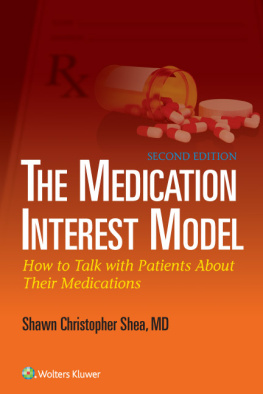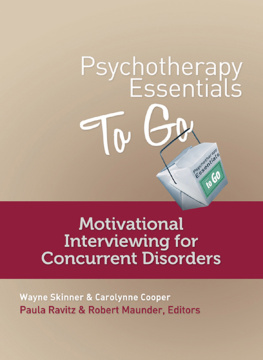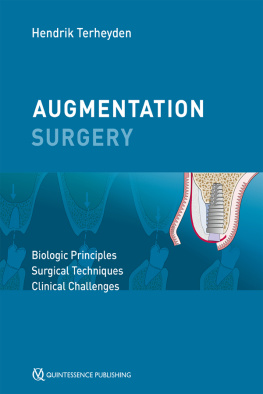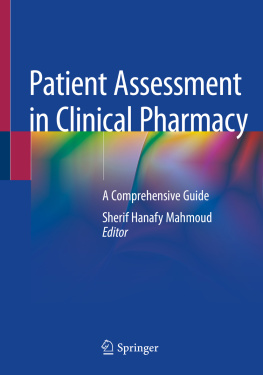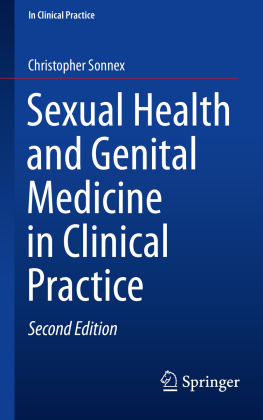Advance Praise for The Medication Interest Model: How to Talk with Patients About Their Medications, 2nd Edition
Dr. Sheas book on the Medication Interest Model (MIM) is such a necessary and crucial tool in the care of our patients. We may be skilled in the cardiovascular exam, or the pulmonary exam, or we may be superb in the comprehensive neurology or mental health exam, but without techniques like those found in the MIM, these honed skills become almost meaningless. Every clinician must read this book. It should be required reading for all medical students, nursing students, physician assistants, and social workers. The provider-patient relationship has not had such an advance since Sir William Osler.
Peter G. S. Gunther, MD, FACP
Chief Medical Officer, Community Health Centers of Burlington Vermont
Clinical Associate Professor
Larner College of Medicine, University of Vermont
Critical Acclaim from the First Edition
In the following pages, you are in for a treat. You are about to enter the very soul of what we do, and you could not find a better guide... destined to fill a giant void in the training of all medical and nursing students, as well as becoming a classic read for experienced clinicians in search of the art of medicine. My advice is simple read it.
From the Foreword to the 1st Edition
C. Everett Koop, MD, ScD
Former Surgeon General of the United States (19811989)
As an endocrinologist I can safely say that the secret to treating diabetes lies within the pages of this book, for the secret of successfully treating diabetes as well as all other serious diseases lies in improving medication adherence. No book provides better answers to this vexing problem. Laced with humor and compassion it is a fun book, a rare clinical gem, highly recommended for all generalists, specialists, nurses, case managers, and medical, nursing, and clinical pharmacy students. I read it carefully twice.
George F. Cahill, Jr., MD
Professor of Medicine, Emeritus, Harvard Medical School
Past President, American Diabetes Association
A bright and refreshing writing style, packed with unusually insightful interviewing tips. Medication issues are central, complex, and controversial in the era of evidence-based medicine and shared decision-making; and Dr. Sheas book is simply the best resource available on communicating with people about their medications.
Robert E. Drake, MD, PhD
Andrew Thomson Professor of Psychiatry
Dartmouth Medical Schools
A valuable book for even the most experienced clinician from primary care to endocrinology. Dr. Shea brings rich insights to a topic (what words we choose as we introduce medications and address their side-effects), that is seldom discussed in training. He reminds us that our words are as important a part of the pharmacopoeia as the medications themselves.
John F. Steiner, MD, MPH
Director of the Colorado Health Outcomes Program
Professor of Medicine, Preventive Medicine and Biometrics
University of Colorado
Shawn Shea, a rare Lincolnesque physician, wrassles to the ground the tough problem of improving medication adherence... written with gimlet-eyed clarity and eloquence this book is a boon for any clinician.
Mack Lipkin, MD
Founding President of the American Academy on Physician and Patient
Professor of Medicine
NYU Medical Center
An outstanding contribution to our clinical literature immensely practical filled with interviewing tips for improving medication adherence for every clinician.... Students and well-seasoned clinicians alike will benefit from the perceptive observations and wise advice that fills this book.
James Ellison, MD, PhD
Associate Professor of Psychiatry, Harvard Medical School
Clinical Director, Geriatric Program, McClean Hospital
The Medication Interest Model
How to Talk with Patients
About Their Medications
2ND EDITION

Acquisitions Editor: Rebecca Gaertner
Development Editor: Kristina Oberle
Editorial Coordinator: Alexis Pozonsky
Marketing Manager: Rachel Mante Leung
Production Project Manager: David Orzechowski
Production Coordinator: Sadie Buckallew
Design Coordinator: Joan Wendt
Manufacturing Coordinator: Beth Welsh
Prepress Vendor: S4Carlisle Publishing Services
Second edition
Copyright 2019 Wolters Kluwer.
Copyright 2006 Wolters Kluwer Health. All rights reserved. This book is protected by copyright. No part of this book may be reproduced or transmitted in any form or by any means, including as photocopies or scanned-in or other electronic copies, or utilized by any information storage and retrieval system without written permission from the copyright owner, except for brief quotations embodied in critical articles and reviews. Materials appearing in this book prepared by individuals as part of their official duties as U.S. government employees are not covered by the above-mentioned copyright. To request permission, please contact Wolters Kluwer at Two Commerce Square, 2001 Market Street, Philadelphia, PA 19103, via email at permissions@lww.com, or via our website at lww.com (products and services).
9 8 7 6 5 4 3 2 1
Printed in China
Library of Congress Cataloging-i n-Publication Data
Names: Shea, Shawn C., author.
Title: The medication interest model: how to talk with patients about their medications / Shawn Christopher Shea.
Other titles: Improving medication adherence
Description: Second edition. | Philadelphia: Wolters Kluwer Health, [2019] | Preceded by Improving medication adherence: how to talk with patients about their medications / Shawn Christopher Shea. 2006 | Includes bibliographical references and index.
Identifiers: LCCN 2018016231 | ISBN 9781451185201 (paperback) | eISBN: 9781975106096
Subjects: | MESH: Medication Adherence | Interviews as Topic | Physician-Patient Relations
Classification: LCC R727.3 | NLM W 85 | DDC 610.69/6dc23 LC record available at https://lccn.loc.gov/2018016231
This work is provided as is, and the publisher disclaims any and all warranties, express or implied, including any warranties as to accuracy, comprehensiveness, or currency of the content of this work.
This work is no substitute for individual patient assessment based upon healthcare professionals examination of each patient and consideration of, among other things, age, weight, gender, current or prior medical conditions, medication history, laboratory data, and other factors unique to the patient. The publisher does not provide medical advice or guidance and this work is merely a reference tool. Healthcare professionals, and not the publisher, are solely responsible for the use of this work including all medical judgments and for any resulting diagnosis and treatments.
Given continuous, rapid advances in medical science and health information, independent professional verification of medical diagnoses, indications, appropriate pharmaceutical selections and dosages, and treatment options should be made and healthcare professionals should consult a variety of sources. When prescribing medication, healthcare professionals are advised to consult the product information sheet (the manufacturers package insert) accompanying each drug to verify, among other things, conditions of use, warnings, and side effects and identify any changes in dosage schedule or contraindications, particularly if the medication to be administered is new, infrequently used or has a narrow therapeutic range. To the maximum extent permitted under applicable law, no responsibility is assumed by the publisher for any injury and/or damage to persons or property, as a matter of products liability, negligence law or otherwise, or from any reference to or use by any person of this work.

